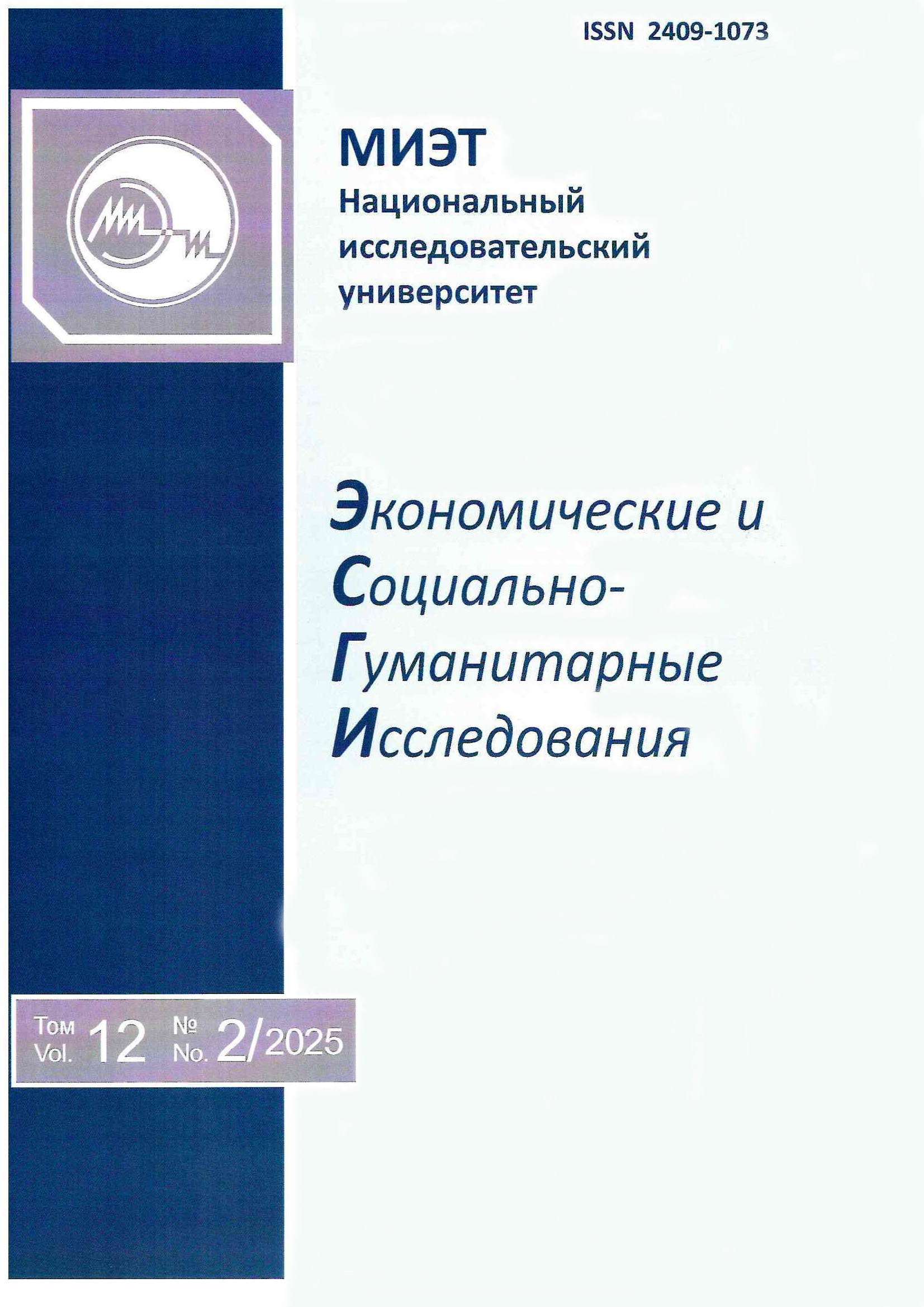Belarus
UDC 165.0
UDC 17.03
UDC 004.8
The “new ethics” of artificial intelligence proposed by M. Gabriel is critically evaluated. It is argued that, unlike human intelligence, artificial intelligence is devoid of normative dimension, or, equivalently, context sensitivity. The author shows the contradiction between M. Gabriel’s viewpoint and J. Benoist’s realistic contextual approach to ethics, and T. Williamson’s moral realism, according to which it is not principles that are primary, but moral perception in context, paradigmatic examples of moral knowledge. Approaches to artificial intelligence understanding by M. Gabriel, D. Andler, L. Floridi, and S. Russell are compared. The feasibility of D. Andler’s moderation principle has been proved. The realistic concept of artificial intelligence (AI) is opposed to the idealistic concept.
artificial intelligence, AI ethics, Gabriel, moral progress, autonomy, context, normativity, moral realism, moderation principle
1. Pris I. E. “Artificial Intelligence and Neo-Existentialism”. Filosofiya v XXI veke: napravleniya i tendentsii razvitiya: materialy II Mezhdunar. nauch.-prakt. konf. (Moskva, Zelenograd — Krasnoyarsk, 12 aprelya 2024). Gen. ed. N. V. Danielyan. Moscow: MIET, 2024a. 159—169. (In Russian). 3 parts.
2. Pris I E. “Artificial Intelligence Is Not Intelligence and Never Will Be”. Nauka i innovatsii = Science and Innovations 9 (259) (2024b): 26—29. (In Russian).
3. Pris I. E. “Quantum-Like Modeling and its Philosophical Foundations”. Filosofiya nauki = Philosophy of Science 3 (102) (2024c): 109—129. (In Russian). https://doi.org/10.15372/PS20240307
4. Pris I. E. “Contextual Moral Realism”. Sibirskij filosofskij žurnal = Siberian Journal of Philosophy 21.4 (2023): 5—28. (In Russian). https://doi.org/10.25295/2541-7517-2023-21-4-5-28
5. Andler D. Intelligence artificielle, intelligence humaine: la double énigme. Paris: Gallimard, 2023. 432 p.
6. Andler D. “The Normativity of Context”. Philosophical Studies 100.3 (2000): 273—303. https://doi.org/10.1023/A:1018628709589
7. Brey P., Dainow B. “Ethics by Design for Artificial Intelligence”. AI and Ethics 4.4 (2024): 1265—1277. https://doi.org/10.1007/s43681-023-00330-4
8. Chakraborty A., Bhuyan N. “Can Artificial Intelligence Be a Kantian Moral Agent? On Moral Autonomy of AI System”. AI and Ethics 4 (2024): 325—331. https://doi.org/10.1007/s43681-023-00269-6
9. Chalmers D. “The Singularity: A Philosophical Analysis”. Journal of Consciousness Studies 17.9-10 (2010): 7—65.
10. Coeckelbergh M. AI Ethics. Cambridge, MA: The MIT Press, 2020. 248 p.
11. Evans R. “2 The Apperception Engine”. Kim H., Schönecker D., eds. Kant and Artificial Intelligence. Berlin: De Gruyter, 2022. 39—103. https://doi.org/10.1515/9783110706611-002
12. Floridi L. The Ethics of Artificial Intelligence: Principles, Challenges, and Opportunities. Oxford: Oxford Up, 2023. 272 p.
13. Gabriel M. Der Sinn des Denkens. Berlin: Ullstein, 2018. 368 S.
14. Gabriel M. Moralischer Fortschritt in dunklen Zeiten: Universale Werte für das 21. Jahrhundert. Berlin: Ullstein, 2020. 369 S.
15. Gudmunsen Z. “The Moral Decision Machine: A Challenge for Artificial Moral Agency Based on Moral Deference”. AI and Ethics 5 (2025): 1033—1045. https://doi.org/10.1007/s43681-024-00444-3
16. Huang L. T.-L., Papyshev G., Wong J. K. “Democratizing Value Alignment: From Authoritarian to Democratic”. AI and Ethics 5 (2025): 11—18. https://doi.org/10.1007/s43681-024-00624-1
17. Kim H., Schönecker D., eds. Kant and Artificial Intelligence. Berlin: De Gruyter, 2022. v, 290 p. https://doi.org/10.1515/9783110706611
18. Lindner F., Bentzen M. M. “A Formalization of Kant’s Second Formulation of the Categorical Imperative”. arXiv. Rev. 11 July 2019. Web. 15 May 2025. https://doi.org/10.48550/arXiv.1801.03160
19. McDonald F. J. “AI, Alignment, and the Categorical Imperative”. AI and Ethics 3 (2023): 337—344. https://doi.org/10.1007/s43681-022-00160-w
20. Perez‑Escobar J. A., Sarikaya D. “Philosophical Investigations into AI Alignment: A Wittgensteinian Framework”. Philosophy & Technology 37.3 (2024): 80. https://doi.org/10.1007/s13347-024-00761-9
21. Powers T. M. “Prospects for a Kantian Machine”. IEEE Intelligent System 21.4 (2006): 46—51. https://doi.org/10.1109/MIS.2006.77
22. Russell S. Human Compatible. Artificial Intelligence and the Problem of Control. New York: Penguin Books, 2020. 352 p.
23. Schlicht T. “1 Minds, Brains, and Deep Learning: The Development of Cognitive Science through the Lens of Kant’s Approach to Cognition”. Kim H., Schönecker D., eds. Kant and Artificial Intelligence. Berlin: De Gruyter, 2022. 3—38. https://doi.org/10.1515/9783110706611-001
24. Shanker S. G. Wittgenstein’s Remarks on the Foundations of AI. London: Routledge, 1998. xvi, 280 p.
25. Simion M., Kelp Ch. “Trustworthy Artificial Intelligence”. Asian Journal of Philosophy 2 (2023): 8. https://doi.org/10.1007/s44204-023-00063-5
26. Williamson T. “Unexceptional Moral Knowledge”. Journal of Chinese Philosophy 49.4 (2022): 405—415. https://doi.org/10.1163/15406253-12340082









